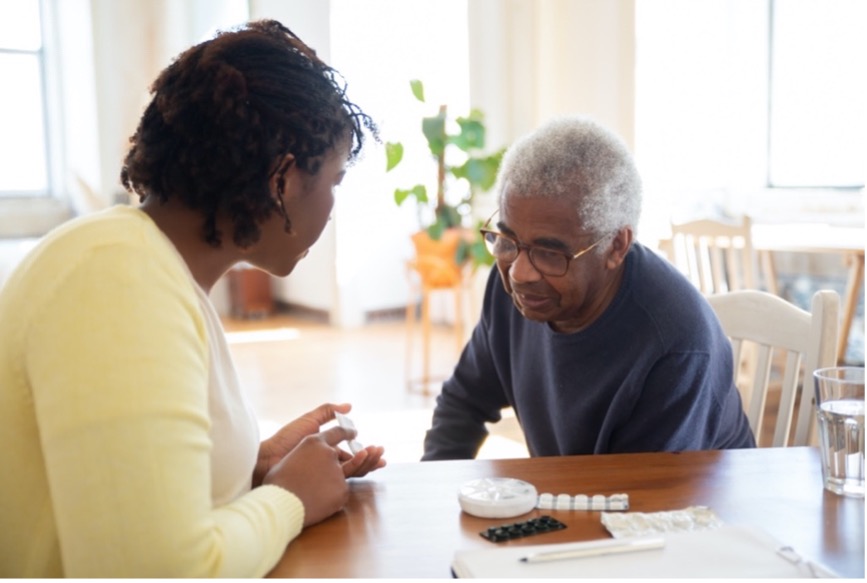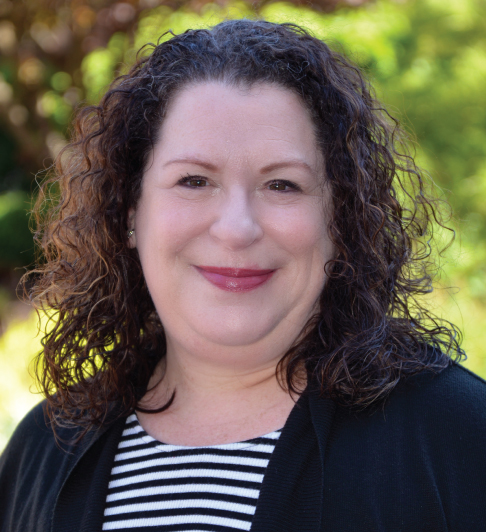To Improve Senior Safety, Children and Caregivers Should Focus on Communication


Regular communication with a parent or senior loved ones is the first step toward protecting them from online threats, financial missteps, poorly organized medications, and more. In some situations, an in-home caregiver may be needed to add another layer of protection for seniors.
Aging, Caring, Companionship, and Safety
No one has ever been able to stop time, but with every passing moment we have the ability to make sound choices about our health and safety. And though these choices are always important, for most people their significance increases after age 60, when changes to bodies and minds tend to accelerate, and the challenges presented by immediate physical surroundings, and “cyber” environments, can intensify. If you are a caregiver, or child of an aging adult, here are some important things to look out for as you try to help them be safe.
Listening to Seniors
Communication is foundational to so much in our lives, so it should come as no surprise that it is also foundational in helping adult children make wise choices with their parents. “Regular contact and conversation with elderly parents is extremely important,” said David Busam, a doctor of physical therapy (DPT), and the Therapy Supervisor at Cedar Village Senior Living Community, in Mason, Ohio. “Whether it’s with their kids, their friends, or their neighbors, communicating with older adults is your first step to knowing more about how they are doing, and also how well they are navigating their home environment.”
Benefits of Caregiver Vigilance on Senior Safety
When it comes to physical safety for seniors, Busam first focuses on mobility. “Any tripping hazards and loose, unsecured rugs should be removed,” he said. “And we want to know if a parent or senior can get in and out of a car, and whether they can navigate the stairs to get into the house? Are there any railings or handles on those stairs? Once in the house, will mom or dad be going upstairs, or staying on one main floor? These are all key questions.”
Senior Hygiene Assistance
Bathing and toileting are always a possible safety issue for older adults, according to Busam. “The bathroom is a very dangerous place because of smooth, hard surfaces and wet, slippery surfaces,” he said. He urges families to consider having grab bars installed in the shower and near the toilet to make mobility in the bathroom safer and easier for seniors. “And if you don’t have rubber mats in the bathtub to prevent slipping, that could be an accident waiting to happen,” he added.
Driving and Senior Safety
Not every safety issue for seniors is an either/or, black or white issue. Elderly parents want and deserve as much choice and control over their lives as is reasonably possible. Determining the right balance to maximize their autonomy should always be a goal. “When we look at a senior’s ability to drive,” said Busam, “the answer isn’t always, ‘Yes, you can drive,’ or ‘No, you can’t drive.’ Sometimes the answer is, ‘You shouldn’t drive more than a mile or two away from home, and please restrict your driving to daytime hours.’”
Strength and Fitness: Another Pathway to Senior Safety
Preventing accidents can also be achieved through physical exercise and training. Adrienne Mowery, a physical therapist with Choice Physical Therapy, says that small changes in strength can have a dramatic impact on safety. “If you can stand on one foot for just one or two seconds, you’re at a high risk for falling,” she said. “But if you can increase your time by three to five seconds, that is statistically significant; you’re going from a high risk to a moderate risk.”
Senior In-Home Care—Built on Jewish Foundations
Like Busam and Mowery, Debbie Balk is an expert in helping keep older adults safe in their homes. Balk is the Director of StarPoint Home Care, a nonprofit in-home caregiver service founded by the Jewish Home of Cincinnati in 2008, and currently operating as a subsidiary of Jewish Family Service of Cincinnati.
My general training as a social worker has taught me to look at all aspects of senior safety: physical, cognitive, financial, emotional—all of those things are important, in different ways.
— Debbie Balk, Director, StarPoint Home Care
Holistic Safety for Seniors: The 360-Degree Approach
Balk’s background helps her interpret senior safety from a more holistic, 360-degree perspective. “My general training has taught me to look at all aspects of mom and dad’s safety: physical, cognitive, financial, emotional—all of those things are important, in different ways,” she said. “If a parent is getting a lot of spam calls or strange emails—or if you see their checkbook and they’re sending checks or online payments to places you don’t recognize, that’s not safe. If their prescriptions aren’t getting picked up or they’re missing doctor appointments or calls, that’s not safe—and something should definitely be done to protect aging loved ones.”
Health & Finances: Another Key to Senior Safety
To shelter mom and dad from such dangers, Balk believes that access to their health and financial information—whenever permissible or possible—can significantly enhance senior safety. “Having power of attorney and health care power of attorney to view their bank accounts and health information—those are extremely valuable safety tools,” she said. “And having the ability and the freedom to talk to their physician is certainly a smart option.”

StarPoint Director Debbie Balk maintains that senior safety touches on factors we don’t often think about—like finances, cyber security, and even pet care.
Careful Observation and Senior Safety
Of all the methods Balk uses to assess whether seniors are safe in a home, few are more valuable than careful observation. “There is really no substitute for having a pair of eyes in a home to pick up on the little things,” she said. “I might notice that food that was prepared for a senior client the day before hasn’t been eaten. Or maybe I’ll find things in the refrigerator that don’t belong there, or notice that a pet isn’t being well taken care of. Perhaps there is a slight body odor because they haven’t been showering and the laundry is accumulating. I also check on their medications. Are they well-organized—or are prescription bottles scattered around the house? It’s my job to take that all in and assess what I can from the clues.”
Impartial, Professional, Compassionate Help for Seniors in Need
Balk recognizes that adult children and their parents don’t always live near each other, but insists that shouldn’t prevent adult children from making good choices. “When children live out of town, we often suggest they bring in a care manager from an agency,” she said. “A care manager from CareLink at Jewish Family Service [a geriatric care management practice] can help you observe from a distance. If you suspect that something’s going on with mom or dad, having somebody with an impartial, objective view meet with them can make a world of difference.”
How Private-Duty Aides Can Enhance Safety for Seniors
Another smart choice is hiring an in-home caregiver, but since that can be a major decision for most families, Balk often recommends taking things slowly. “Maybe you have somebody come a few hours a day, just so you just have eyes on them until you figure out what the next step is,” she suggested. However, Busam warns that time isn’t always a friend. “In many situations, you’re one fall away from a catastrophe,” he said. “So having a home health aide who can come into the house a couple of times a week can increase the safety level by a huge percentage.”
No one has ever been able to stop time, so adult children will, at some point, need to help their moms and dads be safer. As Busam says, talking to your aging parents or senior loved ones is a great first step.
